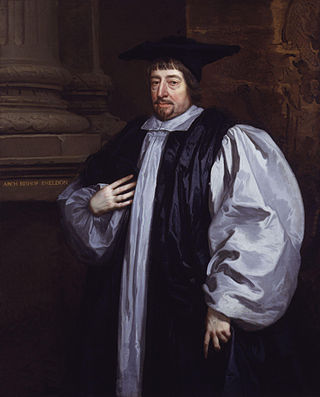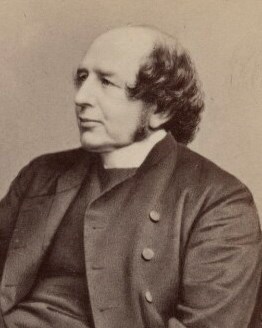Related Research Articles

Gilbert Sheldon was an English religious leader who served as the Archbishop of Canterbury from 1663 until his death.
The Plumian chair of Astronomy and Experimental Philosophy is one of the major professorships in Astronomy at Cambridge University, alongside the Lowndean Professorship. The chair is currently held at the Institute of Astronomy in the University. The Plumian chair was founded in 1704 by Thomas Plume, a member of Christ's and Archdeacon of Rochester, to "erect an Observatory and to maintain a studious and learned Professor of Astronomy and Experimental Philosophy, and to buy him and his successors utensils and instruments quadrants telescopes etc."
Henry Francis Pelham, FSA, FBA was an English scholar and historian. He was Camden Professor of Ancient History at the University of Oxford from 1889 to 1907, and was also President of Trinity College, Oxford, from 1897 to 1907.

William de la Zouche (1299–1352) was Lord Treasurer of England and served as Archbishop of York from 1342 until his death.

Walter Kerr Hamilton was a Church of England priest, Bishop of Salisbury from 1854 until his death.

Barnstaple was a constituency centred on the town of Barnstaple in Devon, in the South West of England. It returned two Members of Parliament to the House of Commons of the Parliament of the United Kingdom until 1885, thereafter, one.
William Grey was a medieval English churchman, academic, and Lord High Treasurer. He served as Chancellor of Oxford University and as Bishop of Ely.

John Fielder Mackarness was a Church of England bishop.
Henry Hobhouse, was an English archivist and civil servant.

Stephen Weston (1665–1742) was an English bishop and educator.
George Heneage was an English churchman who became Dean of Lincoln.

Robert Hovenden D.D. (1544–1614) was an English academic administrator at the University of Oxford.
John Orum was an English churchman and academic. He was vice-chancellor of Oxford University, and Archdeacon of Barnstaple from 1400 to 1429.
John Northwood was an English medieval churchman and university chancellor.
Edward More (1480–1541) was an English churchman and educator, Archdeacon of Lewes from 1527 to 1541.
John Young or Yonge (1463–1526) was an English churchman and academic. He was titular bishop of Callipolis as suffragan bishop to Richard FitzJames, the bishop of London; and from 1514 his archdeacon of London. He was also Dean of Chichester; and Warden of New College, Oxford, from 1521. He has often been confused with others of the same name, in particular John Yonge.

Edward Lake (1641–1704) was an English churchman, known as a royal tutor, writer and diarist, and archdeacon of Exeter from 1676.
Edward Charles Harington (1804–1881) was an English churchman and writer.
Jonathan Hanmer (1606–1687) was an English ejected minister.
Roger Kelke (1524–1576) was an English churchman and academic, a Marian exile and Master of Magdalene College, Cambridge from 1558 and Archdeacon of Stow from 1563.
References
- 1 2 3 Lee, Sidney, ed. (1892). . Dictionary of National Biography . Vol. 31. London: Smith, Elder & Co.
- ↑ Joyce M. Horn (1964). "Archdeacons: Barnstaple". Fasti Ecclesiae Anglicanae 1300-1541: volume 9: Exeter diocese. Institute of Historical Research. Retrieved 7 October 2014.
- Attribution
![]() This article incorporates text from a publication now in the public domain : Lee, Sidney, ed. (1892). "Keyes, Roger". Dictionary of National Biography . Vol. 31. London: Smith, Elder & Co.
This article incorporates text from a publication now in the public domain : Lee, Sidney, ed. (1892). "Keyes, Roger". Dictionary of National Biography . Vol. 31. London: Smith, Elder & Co.
